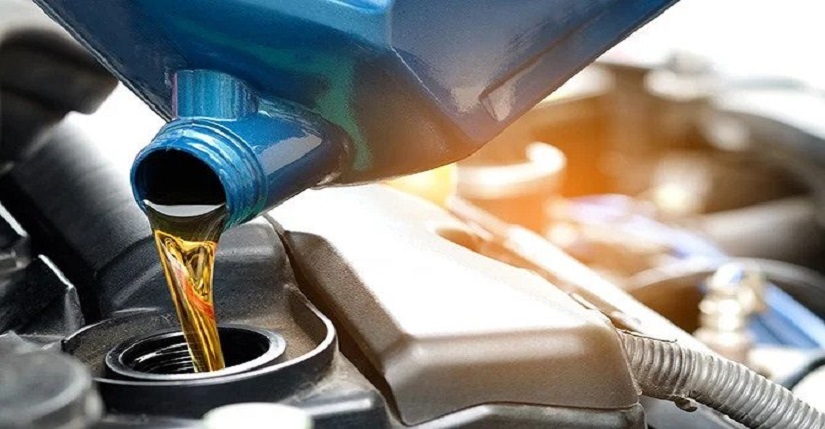Any combustion engine requires engine oil to function properly. The engine oil must be the right oil for the respective engine and it needs to be changed regularly. But why is that? What happens if the wrong oil is used? Engine oil must lubricate the various parts of an engine to reduce friction and minimize unnecessary loss of power.
In today’s times, the market for pre-owned luxury cars have also seen an uprising trend from decades. We use our bikes, cars, trucks and rickshaws everyday but are we indeed informed about choosing the right engine oil for it? A well lubricated engine will burn fuel more effectively and therefore perform better. Lubrication is just one task. As friction is reduced, the parts and surfaces being prone to friction are protected. The amount of wear and tear is minimized so that the parts have a longer lifetime. Engine oils or motor oils lubricate the internal combustion engines and prevent friction in them. Not only in brand new cars or vehicles are this engine oil choice necessary, but while you wish to buy & sell cars in Delhi, the health of the engine is of utmost importance alongside other credentials. That is the reason the right engine oil is a key factor in determining the best price while selling a vehicle as well, as it directly affects the wellbeing of your vehicle’s engine. They are comprised of various base oils and are further influenced by additives such as detergents and dispersants. The reasons engine oil is crucial to your vehicle’s engine is because of the following reasons:
- Helps in cooling the engine
- Keeps your engine clean
- Protects the moving parts
- Makes the engine run smooth
- Delivers high performance
Various factors come in to play while selecting an engine oil. You must select the one depending upon varied considerations;
- Car manufacturer and the series
- Driving environment
- Types of engine oil
- Viscosity grade
- Oil standards
TIPS TO CHOOSE THE BEST ENGINE OIL:
When selecting the right choice of engine oil for your vehicle, one thing is sure that one size doesn’t fits all. That simply means that one engine oil is not suitable for all kinds of vehicles. There are a variety of engine oils available in the market today but broadly we can divide them into- Mineral engine oil, Synthetic engine oil and semi-synthetic engine oil. Even if you are in the brand-new section of the vehicles or used cars, among many, PCH Auto World has made its mark in the city as one of the best used car dealers in Delhi. From premium range luxury cars to tiresome paperwork, they make the buyers or the sellers aware about the key points of maintaining a great four-wheel luxe machine.
For the right engine oil, best synthetic oils are created with synthetic components whereas semi-synthetic oils are made with a combination of synthetic oils and minerals. Moreover, mineral oils are the ones that come from petroleum products. The types of Engine Oils available are:
- Synthetic Oil
- Semi-Synthetic Oil
- Mineral Oil
A crucial aspect appears here as to how to know the standards to choose the right engine oil?
Listed below are quick points that one should keep in mind while choosing the engine oil as standard of the product plays a critical role:
- There are different engine oils for diesel and petrol so ensure to check for the same
- Check the performance levels
- Check how well the oils meet the recommendations on the manuals
THREE STANDARDS TO CONSIDER WHILE CHARACTERIZING ENGINE OILS:
- API (American Petroleum Institute) STANDARD
The organization evaluates every blend of motor oil and assigns API rating. API standards advocate proven, sound engineering and operating practices and safe, interchangeable equipment and materials from drill bits to environmental protection. S and C are two letters that are used to determine the standards- the higher the letter in the alphabet, the higher the quality.
- ACEA (European Automobile Manufacturers Association) STANDARD
ACEA specification tells that an oil meets their standards and its true performance. The performance of the oil is broken in to different categories: A-Petrol, B-Diesel, C-Catalyst, E-Heavy duty diesel engine oil; compatible or low SAPS (Sulphated Ash, Phosphorous and Sulphur).
- SAE (Society of Automotive Engineers) STANDARD
SAE number/ code for specifying the viscosity of lubricating oil, established by the US Society of Automotive Engineers. The numbers for crankcase lubricants range from 5 to 50, for transmission and axle lubricants, they range from 75 to 250. The lower the number, the more readily the oil flows. Based on the coldest temperature the oil passes at, that oil is graded as SAE viscosity grade 0W, 5W, 10W, 15W, 20W or 25W. the lower the viscosity grade, the lower the temperature the oil can pass.
While choosing an engine oil, making an informed decision is going to benefit you and the vehicle in the long-run. Make the right choice today!

